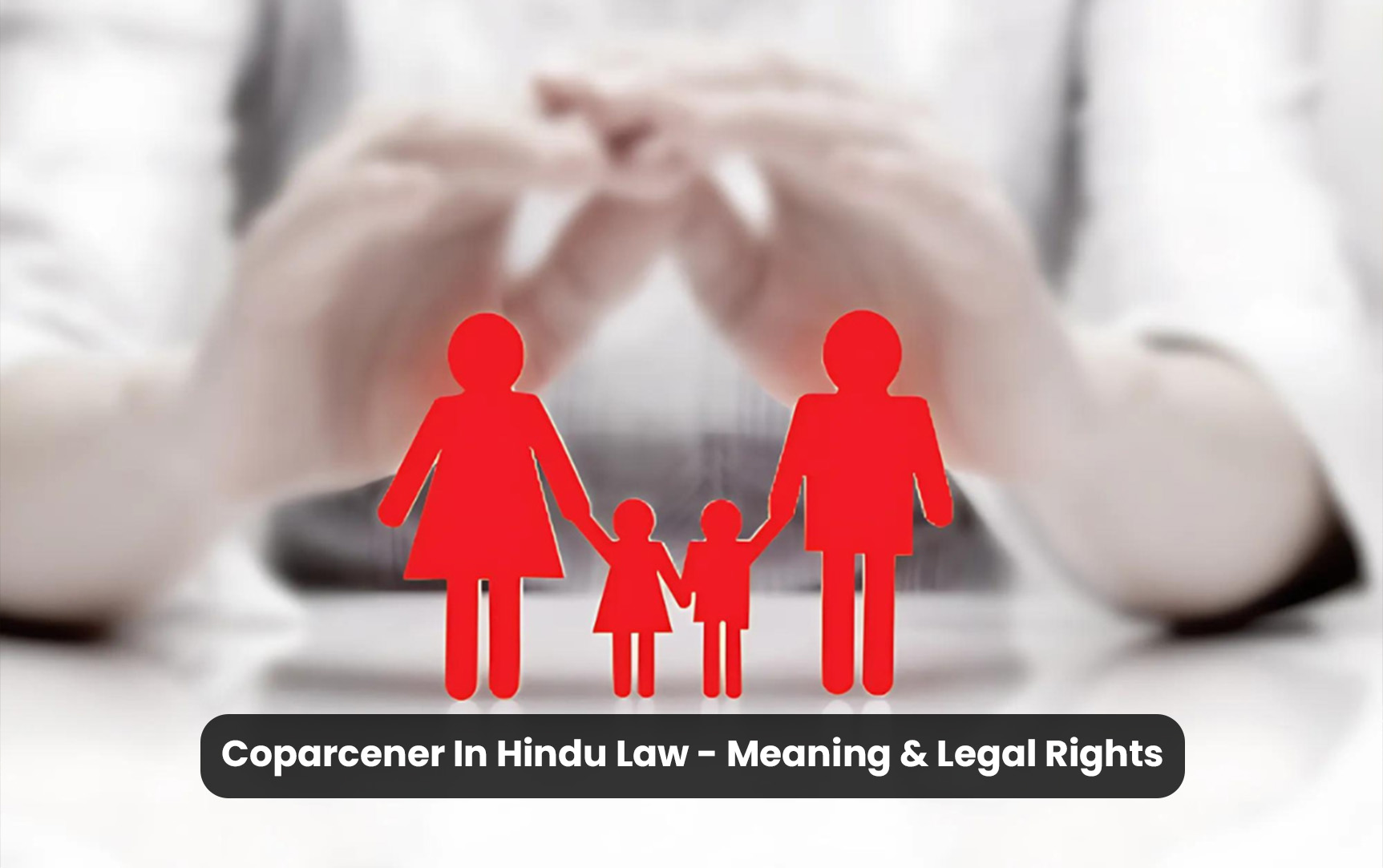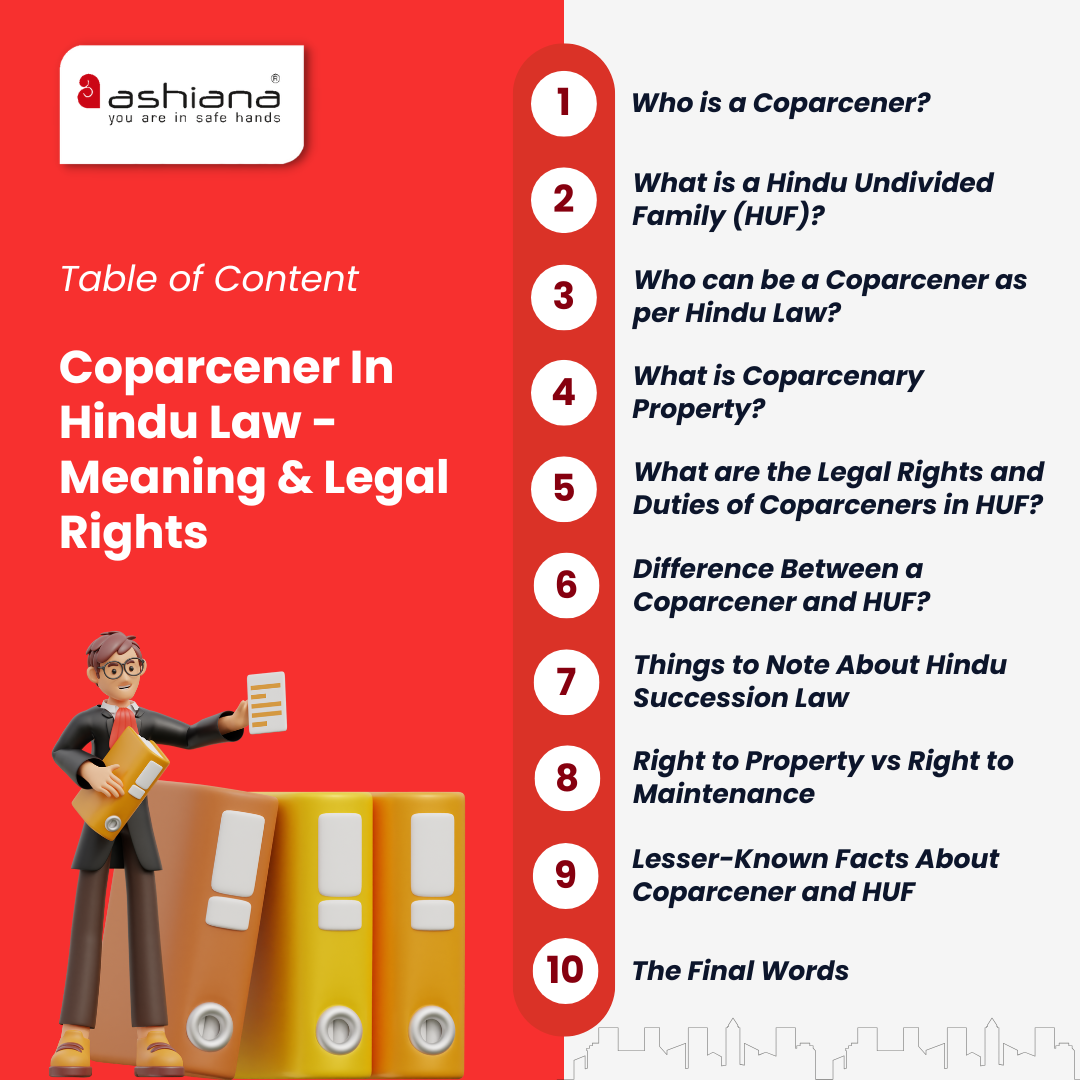

A coparcener is a person who acquires an interest in ancestral property by birth within a Hindu Undivided Family (HUF).
Yes, after the 2005 amendment, married daughters have the same rights as sons and are coparceners from birth.
Yes, under the amended Hindu Succession Law, a mother can become the Karta of a HUF.
Coparcenary property is inherited through generations, while an individual earns self-acquired property and is not part of the coparcenary.
Yes, every coparcener has the right to demand partition of the ancestral property. This comprehensive guide provides factual insights into the concept of coparceners, their legal rights, and how Hindu law has evolved.
Ashiana, Ashiana Housing build homes. Homes surrounded by vast green spaces and fresh breeze. Homes cocooned in secured gated complexes. Homes where futures are forged and there are opportunities to grow. And Homes in environments brimming with healthy activity, trust and respect. At heart, we build communities with care.
Other posts by Ashiana
Join 1000+ of fellow readers. Get expert real estate knowledge straight to your inbox absolutely free. Just enter your email address below.